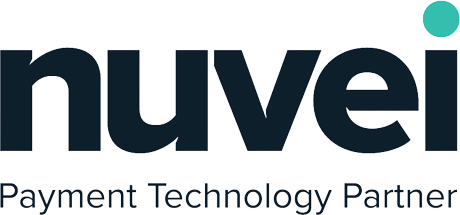Managed DNS
Performance, Availability, and Precision as a Service

Go Beyond Legacy Solutions
We at GlobalDots hunt for the most cutting edge and relevant technologies out there.
Once tested and found qualified we bring you the most certified innovative products out there for every pressing use case.

 Customer Experience
Customer Experience
It’s easy to get lost in the saturated, elusive market of Premium DNS. We help you choose and configure a solution to considerably speed up end-user requests compared to your current provider, all the way from whole seconds to milliseconds.

 SEO Performance
SEO Performance
Improve your SERP ranking and get more organic traffic due to enhanced performance & availability allowed by Premium DNS. We’ll help you exhaust every paid-for feature to maximize its contribution to your search engine visibility.

Insure your web assets and brand reputation from malicious incidents like DDoS. As market experts, we will make sure to gear you with a complete solution, combining performance and security.

 Future-Proof Operations
Future-Proof Operations
Taking a holistic look at your business, we equip you with a premium DNS that can be managed in harmony with your existing or planned architecture: via APIs only, Terraform or Pipelines.

Is DNS Your Security Achilles Heel?
This white paper explains how attackers take advantage of recursive DNS and provides best practices you can follow to mitigate the risks.

-
What is a DNS management system?
A DNS management system is a specialized platform or service designed to simplify, centralize, and optimize the control and configuration of Domain Name System (DNS) records. It allows administrators to efficiently manage domain-related settings like IP address mappings, subdomains, and additional DNS records (e.g., A, AAAA, CNAME, MX, TXT, etc.). A DNS management system directly impacts security posture and operational resilience. DNS is often a target for attackers because of its critical role in connecting users to resources. Managed DNS systems help enforce security best practices (like DNSSEC and rate limiting), provide visibility into misuse, and improve overall response capabilities during incidents. By centralizing and automating DNS, security teams can reduce manual errors, improve incident response times, and gain deeper insight into their organization’s DNS footprint—critical for minimizing attack surfaces. Managed DNS systems rely on distributed infrastructure with redundant, global DNS servers connected via anycast. They dynamically route queries based on policies, monitor query traffic for anomalies, and apply security measures such as encryption, rate limiting, and IP whitelisting to defend against misuse. By integrating with CDNs, firewalls, and load balancers, these systems ensure seamless delivery of both secure and performant services. This combination of optimized routing, automated failover, and advanced security mechanisms not only improves user experience but also fortifies an organization’s defense against DNS-based attacks.
-
How does a managed DNS system work?
A managed DNS system enhances both performance and security by leveraging advanced technologies and best practices that optimize how domain name resolutions occur while safeguarding the DNS infrastructure from threats.
In deed, for performance enhancement, it offers:
- Global Anycast Networks: Managed DNS providers use anycast routing to direct DNS queries to the nearest or least-congested server. This reduces latency and improves the speed of name resolution.
- Traffic Steering and Load Balancing: It uses policies like GeoDNS (directing users to geographically closest servers) and Weighted Round Robin (distributing load across multiple endpoints) to optimize user experiences and reduce server strain.
- Caching and Redundancy: Intelligent caching at distributed points minimizes repeat queries, ensuring quicker response times for frequently accessed domains.
- High Availability and Failover: Managed DNS services ensure reliability with redundant infrastructure and automated failover capabilities, keeping services online during outages.
For security enhancements, it offers:
- DNSSEC: Protects against DNS spoofing and cache poisoning by adding cryptographic signatures to DNS records, ensuring data integrity.
- DDoS Mitigation: Managed DNS providers often include DDoS protection, absorbing and mitigating high volumes of malicious traffic targeting DNS servers.
- Monitoring and Alerts: Real-time monitoring helps detect unusual activity or attacks, allowing security teams to act swiftly.
- Access Control and Auditing: Role-based access controls (RBAC) and detailed logging ensure only authorized users can modify records, reducing the risk of insider threats or misconfigurations.
- Dynamic Updates and APIs: Automated updates through APIs allow rapid response to changes, such as redirecting traffic away from compromised endpoints or integrating threat intelligence.
-
What are the primary use cases for a managed DNS system?
By offering centralized management, advanced automation, and robust security features, managed DNS systems address the challenges of modern, globally distributed infrastructures and dynamic user demands like:
- High-Availability Applications: Managed DNS systems use failover mechanisms to automatically redirect traffic to backup servers when primary systems fail, ensuring uninterrupted availability during server outages or disasters.
- Global Content Delivery: GeoDNS and Anycast routing direct users to the nearest server or data center, minimizing response times and enhancing performance, reducing latency and optimizing user experience for a globally distributed audience.
- Multi-Cloud and Hybrid Environments: A managed DNS centralizes record management, enabling unified updates and reducing misconfigurations in complex environments.
- DDoS Protection Managed DNS providers often include built-in DDoS mitigation that absorbs and deflects attack traffic, keeping DNS resolution functional.
- Scalable E-commerce Platforms: Managed DNS systems can distribute traffic load across multiple servers and dynamically adjust records to accommodate increased demand handling in this way traffic spikes during peak shopping periods.
- Secure Data Integrity with DNSSEC: Managed DNS systems enforce DNSSEC, which cryptographically signs DNS records to ensure authenticity and integrity protecting against DNS spoofing and cache poisoning.
- Disaster Recovery and Business Continuity:Managed DNS enables quick failover routing and traffic rerouting to alternative sites or cloud resources, ensuring minimal downtime and maintaining service during unexpected failures or disasters.
-
Do I need DNS management?
The need for DNS management depends on your organization’s size, infrastructure, and requirements for performance, scalability, and security. Some indicators where DNS management is crucial and the benefits it brings are:
- Complex Infrastructure: You manage multiple domains, subdomains, or hybrid environments (e.g., multi-cloud, on-prem, and edge). Centralized management simplifies configurations and reduces errors when coordinating DNS updates across multiple environments.
- High Traffic or Global Reach: Your applications or websites serve users from multiple geographic locations. Managed DNS leverages GeoDNS and Anycast to reduce latency, enhance user experience, and improve response times globally.
- Frequent Updates and Automation: You frequently update DNS records, such as for DevOps pipelines, dynamic IPs, or CI/CD integrations. APIs and automation tools in managed DNS systems streamline updates and integrate seamlessly with modern workflows.
- Security Concerns: You need to protect your DNS from threats like spoofing, DDoS attacks, or cache poisoning. Features like DNSSEC, real-time monitoring, and DDoS mitigation enhance DNS security and minimize attack surfaces.
- Disaster Recovery and Resilience: You require high availability and failover capabilities for business continuity. Managed DNS enables automatic traffic redirection during server outages or failures, ensuring uptime.
- Scalable Solutions: Your business experiences seasonal spikes or unpredictable traffic patterns. Load balancing and traffic steering in managed DNS systems adapt to traffic demands without manual intervention.
-
How will I know which of all the premium DNS features I need?
Before choosing and implementing a Premium DNS we scope all your current and planned needs, starting with the public, managed DNS portion of your assets. Then, based on your technical requirements, we may recommend – or not – additional Premium Features.
-
Can I pay only for the Premium DNS features I need?
Packages are usually feature-fixed. However, it is our job to help you exhaust every feature for better performance. We also keep in touch post-implementation to recommend additional features as the need arises, such as advanced traffic steering.
-
If it's premium, can I go with a basic package?
Even basic Premium DNS setups provide access to many exceptionally valuable Features. We help you to integrate these right from the start, and to configure it in a way which might save the need for a more costly plan.
-
Who do I go to for support? GlobalDots or the DNS provider?
GlobalDots has a world-class Team of DNS experts. It will be GlobalDots assisting you throughout the scoping, the implementation, the fine tuning, and the maintenance of your Premium DNS product. This goes far beyond what the vendor would entitle you to under normal circumstances, and this is how we keep 100+ happy DNS Customers worldwide.















